We can help you unpack the social world and engage tweens & teens
For more than 25 years, Social Thinking® has been at the forefront of teaching developmental social competencies—helping tweens & teens unpack the social world to guide and support their social, emotional, and organizational learning and development.
What’s that mean? Given that social information is rarely explained directly, it can be confusing for social learners to make sense of what’s going on around them from both a social and an organizational perspective. Within the Social Thinking Methodology, we focus on teaching these concepts through the use of explicit teaching frameworks and strategies to help all people better navigate to regulate in the social world based on what they want for themselves.
Explore
- Free Webinars
- Best-Selling & Award-Winning Products
- On Demand Courses
CEs available for select professionals - Free Stuff for Home & School
- What is Social Thinking?
Books and Games for Tweens, Teens & Young Adults
On Demand Courses—Practical Strategies You Can Use Right Now

Part 1: Strategies for Tweens/Teens Who Are Literal Thinkers and Socially Less Aware
While a literal learning system can be an absolute strength in some circumstances, it can also be a struggle when the academic and social worlds increase in complexity. This course explores how to better understand, support, and teach strategies for more literal thinkers with very literal interpretive systems. We’ll focus on strengths but will also have an honest conversation about how to listen to their individual goals while simultaneously helping them to gain skills and supported independence for adulthood in ways that make sense to them. The 90-day Recorded Replay Access begins at the time of Registration.
1.5 hours of CE credit available for select professionals.

Part 2: Tools for Academically Strong Tweens/Teens with Lagging Social Strategies
Explore the needs of students who desire friendships and relationships with their peer group but struggle with accessing social strategies in the moment. These students often exhibit solid to strong academic and language learning strengths, but report having social and academic goals that are impacted by compelling anxiety, perfectionism, executive functioning skills, and a lack of access to practical tools. The 90-day Recorded Replay Access begins at the time of Registration.
1.5 hours of CE credit available for select professionals.
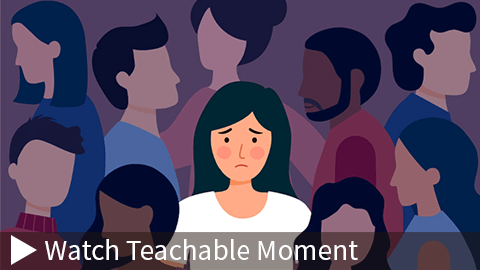
Combating Loneliness and Misbehavior
Download this free visual with practical ideas for initiating social conversations, which Michelle Garcia Winner presents in this course.
Loneliness is a dangerous national epidemic that has been growing in depth and complexity for many years. Loneliness not only endangers our mental and physical health, but it also can make us less kind and caring toward others, resulting at times in misbehavior at schools and within our communities. We’ll explore a range of research-informed ways we can cultivate meaningful relationships with others to foster our well-being, as well as kindness, empathy, and generosity of spirit toward others. Now more than ever, building social awareness, managing anxiety, and developing social communication strategies to combat this growing crisis of loneliness is critical for school-age children, tweens and teens, and all the way through the adult years. The 90-day Recorded Replay Access begins at the time of Registration.
1.5 hours of CE credit available for select professionals.
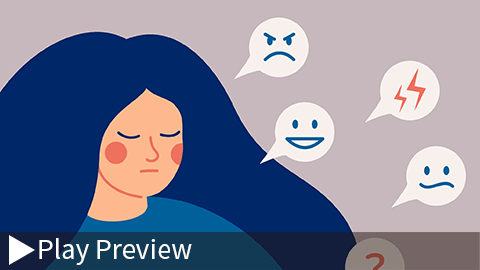
What’s Alexithymia?
What is alexithymia? It refers to challenges in developing awareness of one’s feelings, identifying, and distinguishing them from other physical sensations—and it’s gaining interest in the research, schools, and clinical arenas. Educators and parents have reported an increase in overall “regulation” challenges in the classroom, on the playground, and during small group activities. We’ll highlight select key aspects of emotional awareness and regulation and its role in perspective taking. Specifically, we’ll explore how alexithymia can impact the building blocks for spontaneous perspective taking across all contexts. We will suggest practical strategies to increase awareness of feelings within the perspective-taking process to use within the classroom, school, community, and home. The 90-day Recorded Replay Access begins at the time of Registration.
1.5 hours of CE credit available for select professionals.
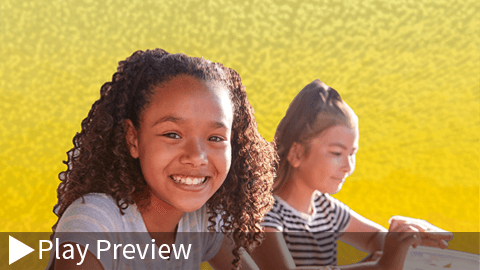
5 Critical Life Skills for Tweens, Teens and Young Adults
Tweens, teens, and young adults are expected to naturally develop social and organizational competencies needed in school and across their lives. However, students with social learning and organized thinking differences (e.g., ADHD, twice exceptional, expressive receptive language, sensory processing, autism levels 1 and 2, etc.) may not intuitively learn these concepts and skills. This course will explore 5 critical life skills related to social emotional learning and organized thinking that can and should be directly addressed and taught to students & clients ages 11-22 in our homes, schools, and clinics. We’ll also review a variety of explicit metacognitive frameworks and practical strategies for teaching and learning these critical social competencies. The 90-day Recorded Replay Access begins at the time of Registration.
2 hours of CE credit available for select professionals.
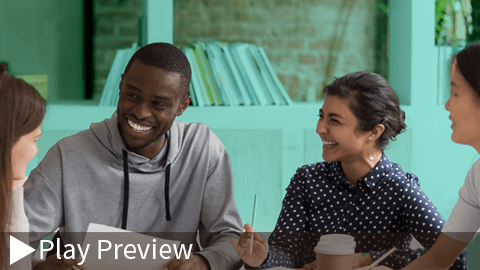
Small Talk & Conversations
Small talk and conversations are dynamic, and we cannot create reliable scripts for how they will unfold. We can, however, increase our students' awareness of why we engage in social exchanges such as small talk. In this online course, we will unpack the complexities of small talk and conversation. We’ll break these down into their component parts to build strategies that support engagement in initial and ongoing social connection for children, teens, and adults. The 90-day Recorded Replay Access begins at the time of Registration.
3.5 hours of CE credit available for select professionals.

Raising an Organized Child
In two keynotes, Dr. Damon Korb, MD FAAP and developmental behavioral pediatrician, and Michelle Garcia Winner, MA, CCC-SLP and founder of the Social Thinking® Methodology, will connect the dots between executive functions—including self-regulation and perspective taking—and creative, practical strategies to foster organized thinking. Damon’s keynote will explain five important steps professionals can learn to guide parents in how to raise an organized child. He will also present strategies and lessons he has learned during his 20 years as a developmental and behavioral pediatrician to help foster children’s active engagement of organized thinking, the kind of learning and functions they’ll use throughout their lives. Michelle’s keynote will focus on how to help students/clients develop friendships. How do people make friends? How do we keep them? What creative strategies can we teach to help tweens and teens learn to invest in these important but complicated relationships? The 90-day Recorded Replay Access begins at the time of Registration.
3 hours of training and CE credit available for select professionals
Free Stuff for Home & School
Free Articles
- Teaching an Essential Life Skill: How to Ask for Help
- 10 Truths & Tips for Making and Keeping Friends
- Three Ways to Advocate for Students Who Appear Persistently “Checked Out”
- A Simple Strategy to Break Through Social Anxiety Barriers
- 10 Levels to Living Independently
- 14 Tips to Help All Kids Learn to Manage Anxiety
- Preparing for the Transition to Adulthood (Part 1)
- Preparing for the Transition to Adulthood (Part 2)
- Preparing for the Transition to Adulthood (Part 3)
- 10 Steps to Foster Organization: Homework and Beyond!
- Aha! Teaching Moments: Social Anxiety and Talking in Class
The Other Side of the Friendship Pyramid: Dealing with Dislike
Respecting Neurodiversity by Helping Social Learners Meet Their Personal Goals
Addressing Social Competencies and Social Anxiety Using the Spirals of Anxiety
Community Is About Caring: Helping Those with Social Anxiety
Social Metacognition: Using Social Emotional Learning to Engage Hope
Free Video Lesson
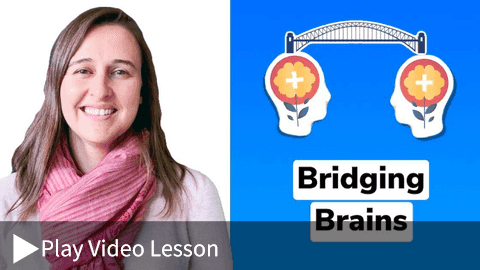
Allison King | MS, CCC-SLP
Social Thinking San Jose, Clinical Director
Everyone has thoughts! How do we know what other people are thinking? How can we let other people know what we are thinking about? How do we get thoughts from one brain to another? The only way to do it is to bridge your brains!
What is Social Thinking?
Strategies to Build Social Competencies
The Social Thinking Methodology provides evidence-based strategies to help people ages four through adult develop their social competencies, flexible thinking & social problem solving to meet their own social goals and improve:






